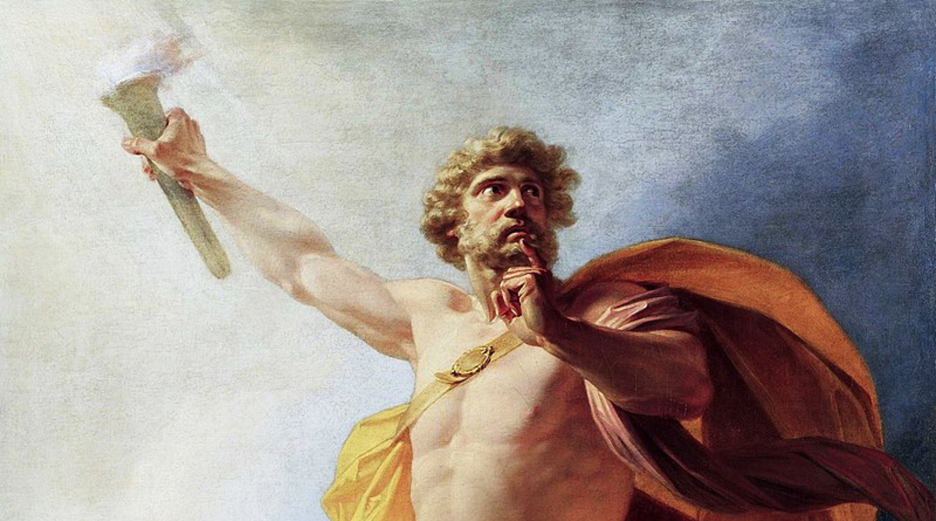How do you define philanthropy?
For most, the word is synonymous with giving to a worthy cause. Yet the idea of philanthropy didn’t begin that way. A look into the word’s ever-changing meaning provides us clues into the motivations that drive philanthropy and how the practice will likely evolve.
Image Credit: Heinrich Füger (German, 1751-1818), “Prometheus Brings Fire to Mankind”/Wikimedia Commons
The concept of philanthropy first appeared in the 5th century BCE. Aeschylus’s play, Prometheus Unbound, tells the story of Prometheus—a god-like titan who took pity on humanity left freezing and starving in the dark. He steals fire from his fellow gods and gifts it to mankind. It’s a gift he knows will likely cost him dearly, but Prometheus is motivated by a universal and unconditional sense of altruism: philos anthropos, or the love of humankind.
Philos anthropos became the English word Philanthropy and was translated quite literally.
Philanthropy, noun: love of humankind;
Aeschylus’s audience would not have been entirely unfamiliar with the concept of philanthropy; they would, however, view their charitable acts in a different light.
The ancient Greek aristocracy—like us—wanted their world to improve. They wanted to see their cities grow more beautiful, prosperous, and safe. The elite felt both a sense of responsibility and pride in building public works.
Yet unlike the selfless altruism of Prometheus, these philanthropists had more human motivations. Strengthening their own communities was a way to ensure their own prosperity, buttress their political positions, and cement their legacy. This thinking transformed philanthropy from the generous act of a god to a practice of the ruling class.
And with that, the definition evolved.
the disposition or active effort to promote the happiness and well-being of others;
This definition emerged at a time when the vast majority of economic activity was still devoted to agriculture. Medieval donations from the elite often came in the form of land, food, and trade goods. Commoners often gave their labor.
The industrial revolution brought about a new age of complexity and specialization. Philanthropists increasingly lacked the time and expertise to provide the right gifts or perform charitable acts themselves. Instead, they came to rely on what they earned.
Practical benevolence was best provided through monetary gifts, leading to the most recent addition to the definition.
now esp. as expressed by the generous donation of money to good causes.
And with that addition, we have the current definition of the word Philanthropy.
Love of humankind; the disposition or active effort to promote the happiness and well-being of others; practical benevolence, now esp. as expressed by the generous donation of money to good causes;
The definition traces a word passed from gods to humans, from once defining our generous actions to the transfer of money.
Is this last entry definitive? Probably not.
Like most words in our language, they adapt as we do, and philanthropic behavior continues to evolve. Generational habits demonstrate this idea: our parents give to the institution; our children give to the story. Platforms like GoFundMe prove the power of a compelling narrative, and donors seeking agency over their support. The reasons for giving today appear less selfless than Prometheus.
So what will the next definition include?
Now esp. as expressed where donors invest in the world’s stories as a way to improve humanity?
That sounds about right.
- Jon Budington

Jon is the Chief Storyteller at Mythos, a software product company focused on building better donor communications.



